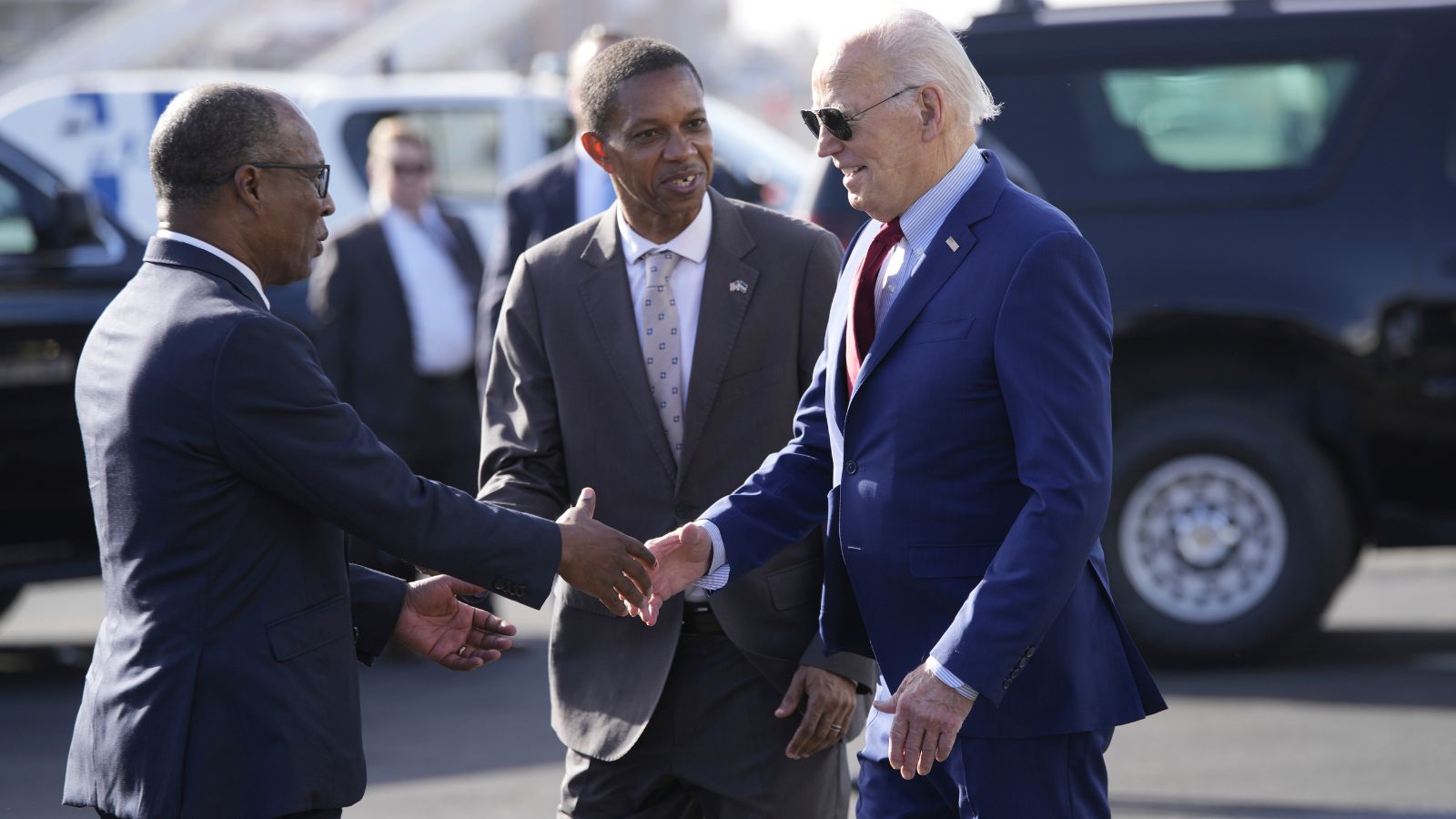President Biden arrived in Angola on Monday for his only trip to sub-Saharan Africa during his term and perhaps his last foreign trip before leaving office, but his trip was overshadowed by his decision to pardon his son for tax and gun crimes.
After refueling in Cape Verde off the coast of West Africa, Air Force One landed in the Angolan capital Luanda at sunset and Mr. Biden attended an event to greet US embassy staff before retiring for the night.
He will begin his trip on Tuesday with a stop at a slavery museum and then travel south on Wednesday to highlight a new $1 billion rail corridor.
Mr. Biden had long promised to visit sub-Saharan Africa, but his trip was delayed until the final weeks of his term. He is the first US president to visit the region since 2015.
He hoped to draw attention to his commitment to Africa at a time when the United States is competing with China on the continent. But that message quickly evaporated when he announced hours before flying out of Washington that he was granting a “full and unconditional” pardon to his 54-year-old son, Hunter Biden.
Hunter Biden was convicted this year of lying on a firearms application form and later convicted of not paying taxes. The president decided to pardon his son despite repeated promises not to do so, and it drew criticism from Republicans and some Democrats for using his power to subvert the judicial process.
Mr. Biden did not speak to reporters traveling with him, and left it to his White House press secretary, Karine Jean-Pierre, to deflect questions from reporters on the plane about whether he had lied when he said he would not pardon his son.
“He did consider it,” he told reporters. “He thought about it. And he believed it and what he saw was that his son had been targeted.
And so he made that decision.” The president stopped in Cape Verde to refuel and met with Prime Minister Ulisses Correia e Silva and thanked the island nation for its support of Ukraine in its war against Russian invaders.
Several other African countries either remained neutral or expressed support for Russia. His staff released a statement praising Cape Verde, calling it “a model of stable democratic governance” and “the freest country in all of Africa.”
No sitting president has ever visited Angola, a longtime Portuguese colony that endured more than a quarter-century of civil war after gaining independence in 1975 and a Cold War conflict between the United States and the Soviet Union.
In the two decades since the end of the war, Angola has built a more prosperous nation on the back of oil and diamond resources, and is now a focus of economic competition between the United States and China.
To demonstrate the American commitment, Mr. Biden plans to announce a variety of investments in global health, agriculture and security cooperation during the trip. He will celebrate a U.S. government initiative that has paired American and Angolan businesses for deals totaling $6.9 billion.
But the duration of such commitments will also depend on the wishes of President-elect Donald J. Trump, who once denigrated African countries with profanity.
John F. Kirby, the president’s national security spokesman, rejected the notion that Mr. Biden’s trip coming at the end of his term weakened his message of support. He noted that 20 Cabinet-level officials have visited the continent, and cited American investments. “I push back on the premise that this is a kind of Johnny-lately trip,” he said.
“This is something he’s been focused on since he became president of the United States.” Mr. Kirby also rejected the notion that the United States was pitted against other major powers for economic influence in the region. “There is no Cold War on the continent,” he said. “We’re not asking countries to choose between us and Russia and China.”
But without naming China, he described the difficulties faced by some African countries as a result of Chinese investment: “Too many countries relied on unregulated investment opportunities and are now burdened with debt.”
